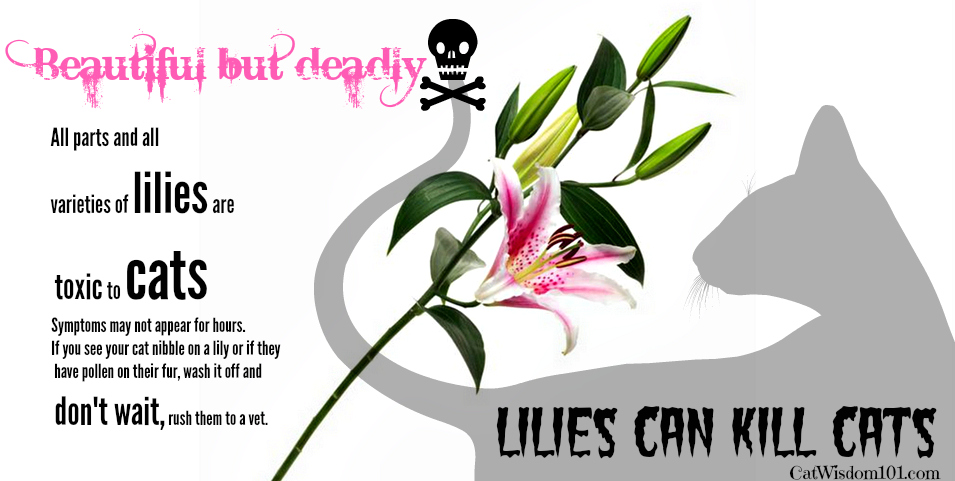The Dangers of Easter Lilies to Cats
Posted by Kevin Webb
on May 04, 2014

Our family found out the hard way this weekend about the danger of lilies to cats. Our 18 month old cat ate a couple of petals from our Easter Lily plant. He immediately began vomiting. We discovered that lilies are deadly to cats. Since this was a Saturday night, our only option was the Emergency Pet clinic on Adelaide St. Since we brought our cat into the clinic within a couple of hours of ingesting the petals the vet said the prognosis will probably be good. However, the cat needs to have extensive blood work done, be kept on intravenous and hospitalized for 48 hours! The cost? Between $1,300 and $1,800!
If you have a cat and love Easter Lilies, love them from afar.... I found the following online article from the Pet Health Network to provide more information. It can also be found at: http://www.pethealthnetwork.com/cat-care/dangers-easter-lilies-cats
In spite of their beauty, Easter lilies are a real health threat to your cat. In fact, all parts of the delicate white flower that appears on so many Easter dinner tables is toxic to cats. Just one bite of a petal, leaves, the stem, or even the pollen of an Easter lily can wreak havoc on your kitty's digestive system and, if left untreated, can lead to kidney failure and death. And while a common culprit, Easter lilies are not the only type of lily that affects cats; tiger lilies, rubrum lilies, and some species of day lily are also poisonous to our feline friends.
Signs & Symptoms
Early signs (approximately 2-4 hours after ingestion) of lily toxicity in your cat include:
- Vomiting
- Lethargy
- Lack of appetite
Later signs (approximately 24-72 hours after ingestion) include:
- Initially, increased thirst and urination followed by decreased urination if the kidneys fail.
Keep in mind that you might not see your cat ingest the lily. If you think there is even a slight chance that your cat has gotten into lilies, seek a veterinarian and tell him or her of your suspicions.
Diagnosis & Treatment
When it comes to treatment of lily toxicosis in cats, time is of the essence! You will need to seek emergency veterinary care immediately. If treatment is administered within 6 hours, chances are good that your kitty will survive. After 18-24 hours, however, the prognosis is not as hopeful, even for cats who receive treatment. Treatment includes emptying the gastrointestinal tract by getting the affected cat to vomit. Veterinarians may also administer activated charcoal to neutralize the toxins. Intravenous fluid treatment is indicated for at least 48 hours in order to prevent or treat renal(kidney) failure.
Your kitty will need to be hospitalized and have his or her blood chemistry and urine values closely monitored to determine if treatment has been successful.
Prevention
The best way to keep your cat safe is to make sure your cat doesn't have Easter lily access to begin with. Don't worry, there are plenty of other beautiful Easter flowers that are safe for your cat, including Easter orchids, daisies, violets, or Easter Cactus. - See more at: http://www.pethealthnetwork.com/cat-care/dangers-easter-lilies-cats#sthash.mslUG2Ci.dpuf
